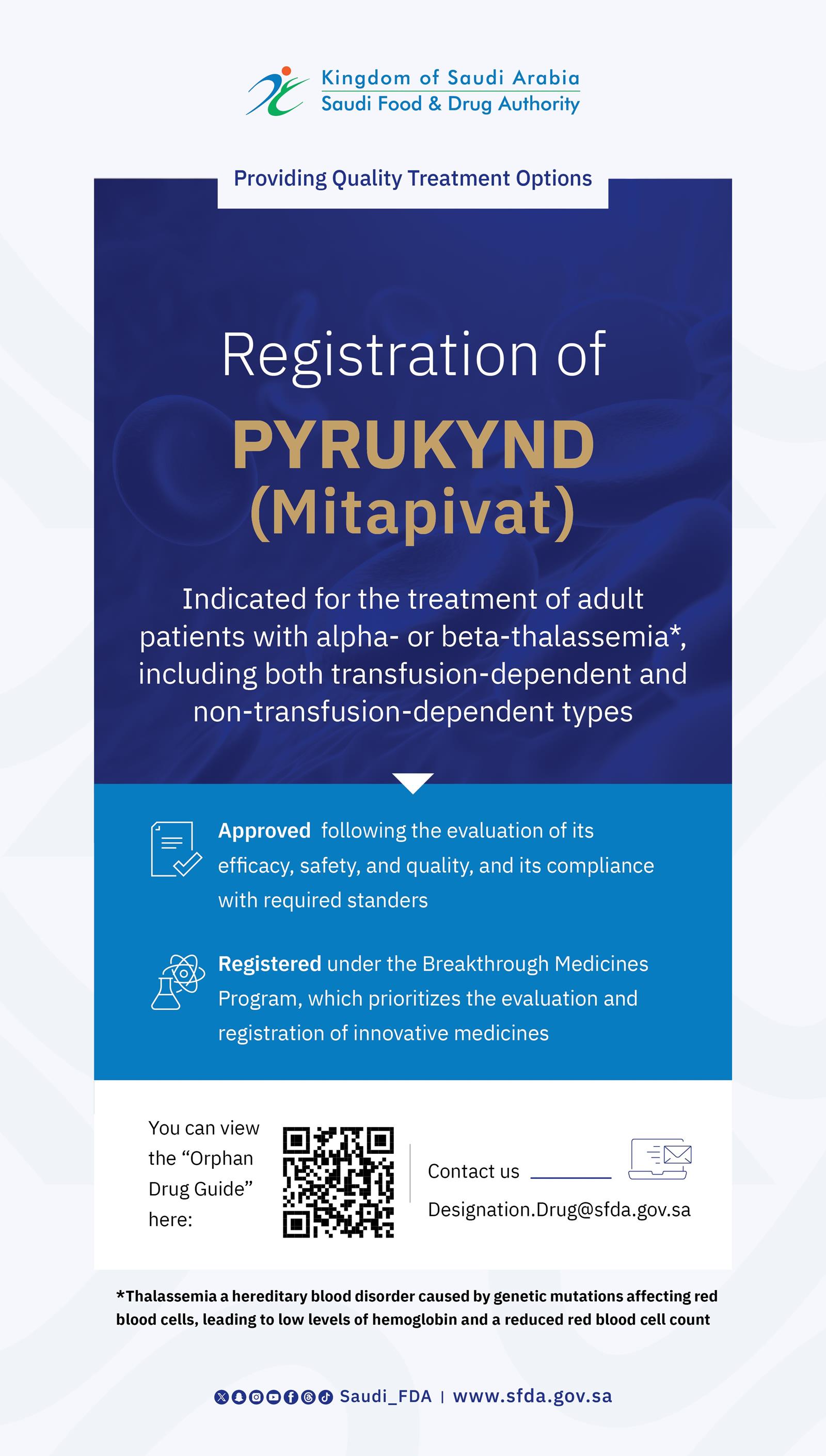SFDA Announces Registration of Pyrukynd for Treatment of Thalassemia

Riyadh, August 04, 2025, SPA -- The Saudi Food and Drug Authority (SFDA) has approved the registration of Pyrukynd (Mitapivat) for the treatment of adult patients with alpha- or beta-thalassemia, whether transfusion-dependent or non-transfusion dependent types. This approval represents a regulatory first for this specific medical indication.
Pyrukynd had previously been designated by the SFDA as a “Breakthrough Medicine” with the aim of accelerating the availability of innovative therapies.
Thalassemia is a hereditary blood disorder caused by genetic mutations that affect the production of hemoglobin, leading to low hemoglobin levels and a reduced count of healthy red blood cells. It is commonly associated with fatigue, general weakness, shortness of breath, and cardiac rhythm disturbances. Mitapivat is the first therapy of its kind and is administered orally. It works by activating the pyruvate kinase enzyme in red blood cells, which leads to improved production of healthy red blood cells, an extended red blood cell lifespan, and reduced need for frequent blood transfusions.
SFDA clarified that the registration of Pyrukynd was based on the totality of evidence following an assessment of its efficacy, safety, and quality, and its compliance with the required standards. The clinical studies conducted on the drug showed statistically and clinically significant positive results in two global Phase 3 clinical trials on patients with Thalassemia alpha and beta: the first study involved non–transfusion-dependent patients and demonstrated a significant increase in hemoglobin levels, while the second study focused on transfusion-dependent patients and showed a notable reduction in the need for blood transfusions. The results of both studies supported a favorable benefit-risk assessment for the approved medical indication.
SFDA indicated that the most common side effects observed in clinical studies were insomnia and headache. It also emphasized the importance of conducting liver enzyme tests before starting treatment and continuing monthly monitoring during the first six months.
SFDA explained that the Breakthrough Medicines Program is dedicated to medicines that have completed clinical development and demonstrated promising efficacy, safety, and a clear therapeutic impact in serious diseases. The program supports faster access to innovative treatments, expands the range of available therapies, and enables early access to breakthrough medicines within a short timeframe, in line with the objectives of the Health Sector Transformation Program, one of the Vision 2030 initiatives.
The necessary criteria for a medicine to receive the “Breakthrough Medicine” designation include targeting a serious or life-threatening condition, demonstrating that its expected benefits outweigh potential risks, offering a significant therapeutic advantage over available treatments, and not being registered with any other regulatory authority at the time of application.
For more information, please refer to the “Breakthrough Medicine Program” Guide https://sfda.gov.sa/en/regulations/89310 or contact the authority at Designation.Drug@sfda.gov.sa.
-- SPA





